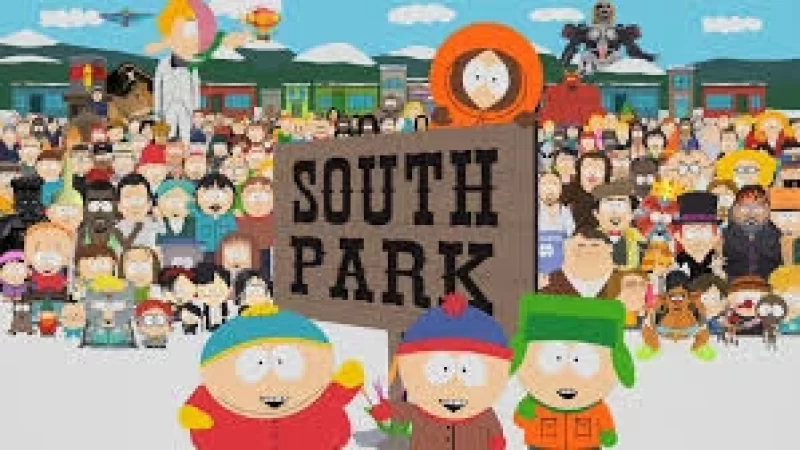South Park People Who Annoy You? 10 Characters And Guide

South Park People Who Annoy You? South Park, the animated sitcom created by Trey Parker and Matt Stone, is renowned for its irreverent humor, biting satire, and colorful characters.
Among its diverse ensemble, there exist individuals who tend to grate on our nerves, provoking a unique blend of annoyance and fascination.
This article delves into the idiosyncrasies of some of South Park’s most vexing characters, exploring their motivations, societal implications, and the hidden messages they convey.
By examining the reasons behind their vexing nature, we can better understand the broader commentary South Park offers on human behavior and society.
What Can We Learn From The Annoying Characters In South Park?
The annoying characters in South Park provide valuable insights into human behavior and societal issues.
By exposing and exaggerating annoying traits, the show encourages viewers to reflect on their own flaws, biases, and tendencies.
These characters serve as mirrors that reveal uncomfortable truths about ourselves and society, fostering self-awareness, critical thinking, and social commentary.
They remind us of the importance of personal growth, questioning societal norms, and examining our own beliefs and behaviors.
Recommended: Which South Park Character Are You? 5 Characters And Guide
South Park People Who Annoy You? 10 Characters
These characters embody various traits and behaviors that can grate on our nerves, yet they serve a purpose in the show’s overarching satire and social commentary.
Here are a few South Park characters that are particularly adept at getting under our skin:
1. Cartman
At the forefront of annoyance in South Park lies Eric Cartman, the embodiment of childish egotism and prejudice.
Cartman consistently engenders frustration with his manipulative tactics, abrasive behavior, and relentless pursuit of self-interest.
Yet, beneath his despicable antics, Cartman serves as a reflection of society’s darker inclinations, laying bare our capacity for bigotry, narcissism, and entitlement.
He invites us to confront these uncomfortable aspects of our own personalities, urging us to self-reflect and seek growth.
2. Randy Marsh
The Overzealous Everyman While initially a mild-mannered character, Randy Marsh evolves into an overzealous and self-absorbed individual as the series progresses.
His incessant need for attention and tendency to jump on any bandwagon that piques his interest can be grating.
However, Randy’s transformation represents the pitfalls of modern society’s obsession with trends, viral fame, and the distortion of personal identity.
Through his exaggerated actions, Randy serves as a cautionary tale, reminding us of the importance of maintaining individuality and critical thinking in the face of societal pressures.
3. Sheila Broflovski
The Persistent Meddler: As the mother of Kyle Broflovski, Sheila’s relentless meddling and constant involvement in community affairs often evoke exasperation.
However, beneath her intrusive nature lies a critique of the helicopter parenting style and the stifling effects it can have on children.
Sheila’s character demonstrates the dangers of excessive control and the need to strike a balance between parental guidance and allowing children the freedom to develop their own identities.
4. Token Black
Token Black, the lone African-American student in South Park Elementary, is initially introduced as a satirical representation of tokenism.
While this may seem superficial, Token’s character transcends mere annoyance, providing a platform to address the complex issues of race and identity.
His struggles with being treated as a symbol rather than an individual challenge viewers to question their own assumptions and biases, encouraging a more nuanced understanding of racial dynamics and social inclusion.
5. Mr. Garrison
Mr.Garrison’s constant changes in personality and outrageous behavior can be polarizing. His unpredictability and over-the-top antics may irritate viewers who prefer more consistent characters.
6. Tweek Tweak
Tweek’s hyperactive and paranoid personality can be grating to some viewers. His constant anxiety and jittery behavior may wear on the nerves of those who prefer more calm and composed characters.
7. Wendy Testaburger
Wendy’s self-righteousness and moral grandstanding can be off-putting for some viewers. Her tendency to lecture and criticize others may come across as annoying or preachy to certain viewers.
8. Timmy Burch
Timmy’s limited vocabulary and repetitive catchphrase (“Timmy!”) may annoy some viewers due to their simplicity and overuse.
While Timmy is a beloved character by many, his repetitive nature can be a source of irritation for some.
9. Jimmy Valmer
Jimmy’s excessive stuttering and his habit of dragging out his jokes can become tiresome for some viewers.
While his character is intended to be comedic, the repetition of his speech patterns may grate on certain viewers’ nerves.
It’s important to note that annoyance is subjective, and these characters are intentionally designed to elicit strong reactions.
The annoyance factor often serves a purpose within the show’s satire and social commentary, challenging viewers to reflect on their own biases and behaviors.
Why Do the Characters In South Park Intentionally Annoy Viewers?
The characters in South Park are intentionally designed to be annoying as part of the show’s satirical and comedic approach.
By exaggerating annoying traits and behaviors, the show aims to provoke discomfort and provoke critical thinking about societal issues.
The annoyance serves as a tool to challenge viewers’ assumptions, biases, and societal norms, encouraging them to reflect on their own behavior and beliefs.
Can The Annoying Characters In South Park Be Seen As Representations Of Real People?
The annoying characters in South Park are often exaggerated representations of real people or societal archetypes.
They embody specific traits or behaviors that are prevalent in society, allowing the show to satirize and critique those aspects of human behavior.
Through these characters, South Park aims to highlight and challenge societal norms, prejudices, and cultural phenomena, prompting viewers to question and analyze their own attitudes and actions.
Conclusion
South Park’s characters have an uncanny ability to elicit annoyance within us, but their purpose extends beyond mere irritants.
By examining the motivations and underlying messages of characters like Cartman, Randy, Sheila, and Token, we unveil a tapestry of social commentary woven into the show’s fabric.
These characters serve as mirrors, reflecting the flaws, biases, and societal issues prevalent in our world.
They challenge us to critically evaluate our own behaviors, prejudices, and tendencies, ultimately encouraging personal growth and introspection.
South Park’s enduring popularity stems from its ability to provoke discomfort, sparking conversations about the uncomfortable truths that permeate our society.
So, the next time you find yourself annoyed by these animated misfits, take a moment to appreciate the thought-provoking discourse they inspire.












